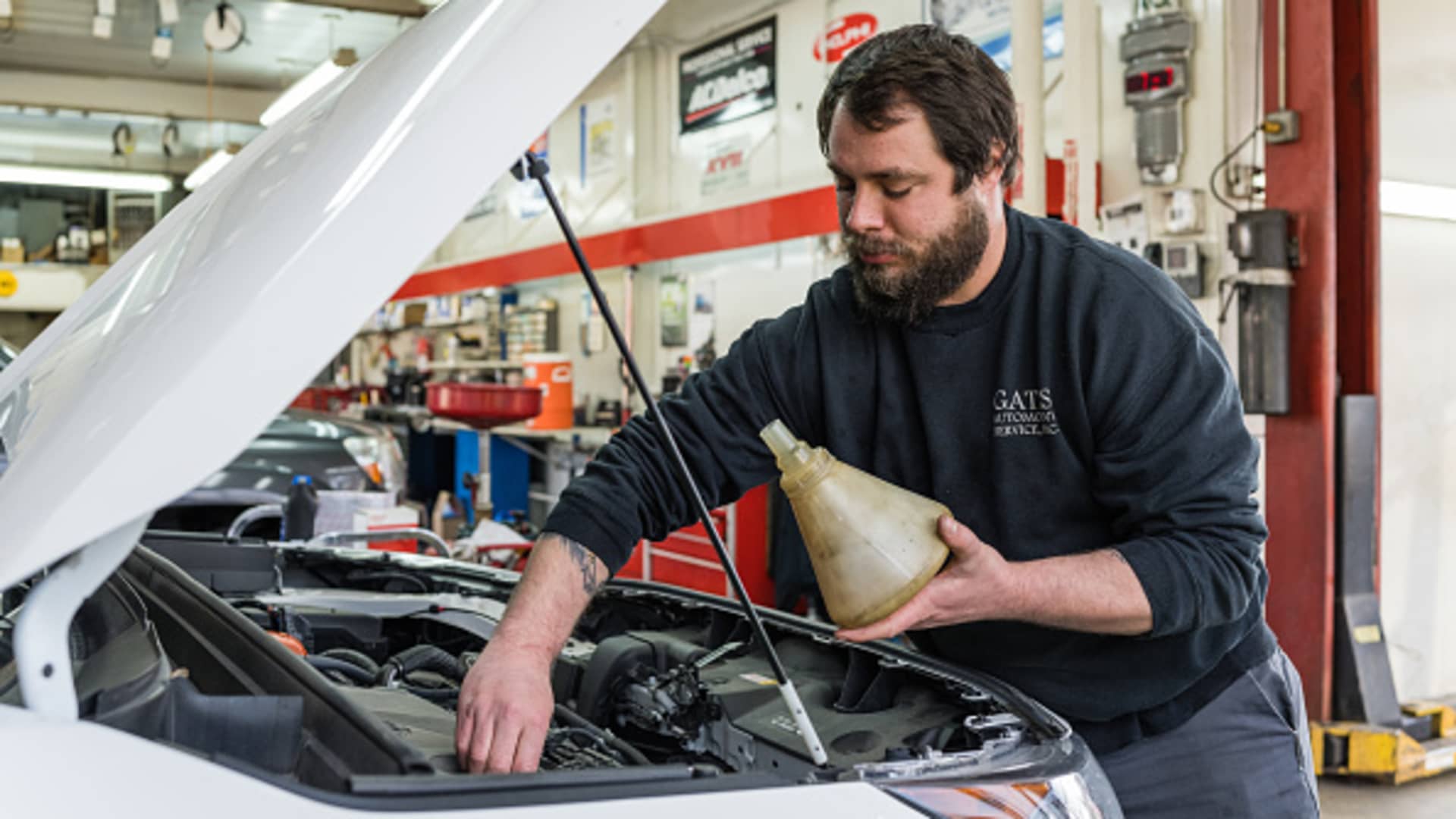Your eyes aren’t fooling you — your car repair bill really is getting more expensive.
Several factors are pushing costs up: heavier, more complex vehicles, new materials and manufacturing methods, a worsening dearth of talented technicians and pandemic-induced supply shortages.
“Customers definitely are getting sticker shock,” said David Goldsmith, who owns Urban Classics, a repair shop in the Brooklyn borough of New York City.
Repair costs are rising relative to the overall rate of inflation. Motor vehicle maintenance and repair costs increased 4.1% per year from November 2013 to November 2023, compared with just 2.8% for the overall consumer price index.
The increase has been especially sharp since the pandemic. Prior to it, repair costs increased at an annual rate of somewhere around 3.5% to 5%, according to Mitchell, which makes software for the collision repair and auto insurance sectors. But in 2022, the rate jumped to about 10%, and hasn’t dropped since.
The problem is mysterious.
“I think the thing that we can say is true is that the cost of collision insurance claims are increasing,” said Matt Moore, who is senior vice president of the Highway Loss Data Institute, at the Insurance Institute for Highway Safety. “After that, it’s difficult to say why that is.”
Vehicles could be more expensive to repair. Crashes could also be more severe.
Cars were 33% heavier in 2022 than they were in 1985, and about twice as powerful, according to HLDI. Meanwhile, speeding and traffic crashes have increased.
Heavier vehicles colliding at higher speeds means worse crashes.
Data could also be skewed. Low speed crashes, which tend to be less severe and lower cost, are happening less often as safety technology improves.
Cars are also stuffed with more stuff, so more can go wrong. Nearly 20% have turbochargers attached to engines, which squeezes more power out and improves efficiency. Two-thirds have all-wheel drive systems — a huge jump over the 10% in the 1980s. All these tweaks add equipment that can break.
Lightweight materials such as aluminum are increasingly popular but can be brittle and require replacement. Cars have fewer parts thanks to new manufacturing methods, but the ones they have are huge and more costly to replace.
Changes don’t stop there.
“Your average regular car now is basically a rolling network of computers,” Goldsmith said.
The computerization of cars has been slowly developing for decades, but it changed “dramatically” in the last decade, said Ryan Mandell, director of performance consulting at Mitchell.
“You can have the same kind of accident that you would have 10 years ago,” Mandell said. “But now you have three additional sensors that are on the part of the vehicle that was impacted that you now have to potentially replace.”
Meanwhile, talent to repair cars is scarce. The Covid-19 pandemic exacerbated a longstanding shortage.
In 2019, the average labor rate for repairs was under $50 an hour in the U.S., according to Mitchell. At the end of 2023, it was close to $60. Most of those increases came in 2022 and 2023.
As people drove less during the Covid years, demand for repairs dried up. Technicians left the industry in search of other work.
The pandemic also drove up the cost of parts. Shipping disruptions contributed to the increase.
In 2022, the cost of parts sourced from automakers rose 10%, and aftermarket parts rose 17%, compared with the usual annual inflation rate of 0% to 4%.
Many in the auto space think costs can’t continue to rise at these rates. The industry is making its biggest shifts in the last hundred years — from gasoline to electric, and from mechanical to digital.
“If cars are to be affordable, they must also be affordable to maintain,” said Alan Amici, president and CEO of the Center for Automotive Research. “And they must be affordable to repair, or else we’re going to have fewer vehicle sales. So I think the automakers are going to be motivated to drive those costs down.”
Watch the video to learn more.

